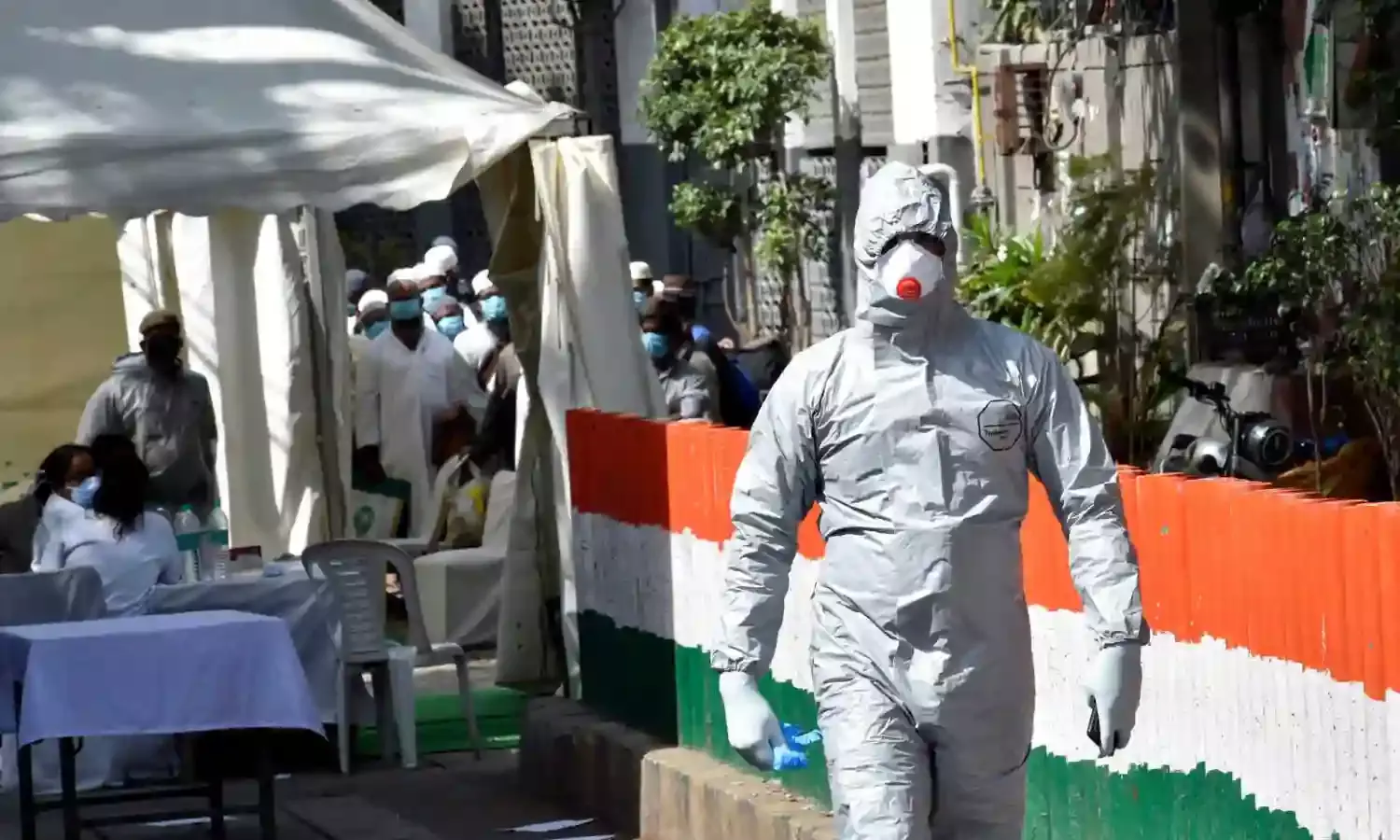Covid19 Blame Game: Political Elites Scapegoat Vulnerable Communities
A new documentary by Ahmedabad filmmaker Dakxin Chhara

The outbreak of Covid19, its declaration as a pandemic and the subsequent lockdowns across the world has led to renewed scapegoating of minorities or marginalised communities around the world.
Once more it is political elites that have resorted to this scapegoating. In India they have targeted Muslims, who alongside the Dalit (oppressed) castes and migrant labourers have borne the brunt.
This is the theme of the film ‘Covid19 Blame Game’ made by Ahmedabad based cultural activist and filmmaker Dakxin Chhara. The film, made with support from the UK based International Network of Democratic Indians Abroad, is scheduled to be released on social media very soon.
And it’s sure to ruffle some feathers, as it deals at length with the scapegoating of Indian minorities under the present regime.
‘Covid19 Blame Game’ shows how political elites worldwide are using scapegoats to convert the ongoing disaster into an opportunity.
The film begins with a bird’s eye view of what marginalised communities have had to face ever since the outbreak was reported from China. From East Asians living in the White world to Black minorities in China, from the Roma to Shia Hazaras in Balochistan, to dishoused people in the United States, Chhara shows how each of these vulnerable groups has been held responsible for the pandemic, and been targeted through vilification campaigns.
At home, Chhara deals in great depth with the demonisation of Muslim Indians amid the spreading panic and confusion. The film describes this demonisation as ‘a deliberate ploy to cover the abysmal failure of the populist authoritarian regime to contain the crisis as it focused instead on stoking communal divisions’.
Interstate migrant workers had misery unleashed on them by their governments as they were compelled to undertake journeys of hundreds of miles on foot following the surprise announcement of a total and thoughtless lockdown: this is well documented in the film, which underlines that migrant labourers in India comprise mainly vulnerable Dalit communities and Adivasis alongside Christians.
It needs to be recalled that many of those who died of fatigue, vehicular accidents or starvation on this forced march home were women and children.
Chhara told The Citizen that “through this film I want to show how blame games have been played to overshadow this humanitarian disaster.”
It is a rare film that was made amid a lockdown with Chhara sitting in Ahmedabad compiling what the researchers and other team members were providing him with, and interviewing experts online.
“Our idea germinated from the facts: that while the influential and elite manage to establish a narrative as per their convenience, those at the receiving end too need to come up with a counter narrative.
“This counter narrative must come instantly, as there is no point coming out with counters when a perception has taken shape in the public mind.
“Normally we have seen that the counternarratives to such scapegoating come after a few months or years, and by then they lose their relevance,” he said.
Chhara described how the political elite ensures that “the scapegoating is done in a manner that the oppressed community is too scared to even tell people what it has been subjected to.
“I experienced this when I was trying to interview the members of Tableeghi Jamaat who were vilified in a systematic manner with the help of the media in our country. The scapegoating ensures that those being oppressed are unable to realise what they are being subjected to,” he explained.
Once the film is released in English, it will be dubbed into at least four Indian languages including Hindi and Gujarati by the end of August. “We are targeting screenings in universities across the world through online platforms, and physical screenings sometime later. The people who are being oppressed need to see and debate how this scapegoating works.”
The documentary opens with reference to how the Great Bubonic Plague outbreak was followed by a genocide of German Jews in the 14th century, and the Great Kant? Earthquake of 1923 in Japan by a massacre of Korean minorities.
It shows in detail how in times of pandemic the political elite try to portray themselves as heroes against a fictitious enemy. The scapegoating of minorities is termed ‘silent genocide’ by those involved in the making of the film.
In ‘Covid19 Blame Game’ it is argued that this scapegoating may lead to havoc in times to come, as the quest for political consolidation or power takes precedence over questions of what is being done and what needs to be done to deal with the prevailing scenario.
Looking for a way to avoid being held to account, the political elites try to divert public attention through distraction and propaganda.
In the section on India the film also deals with the process of courting big media and big businesses to build a story through organised disinformation that targets minorities.
The documentary ends with a call for an informal dialogue, emphasising that the actions of the political elite have a long-term impact on the poor and vulnerable across the world.



